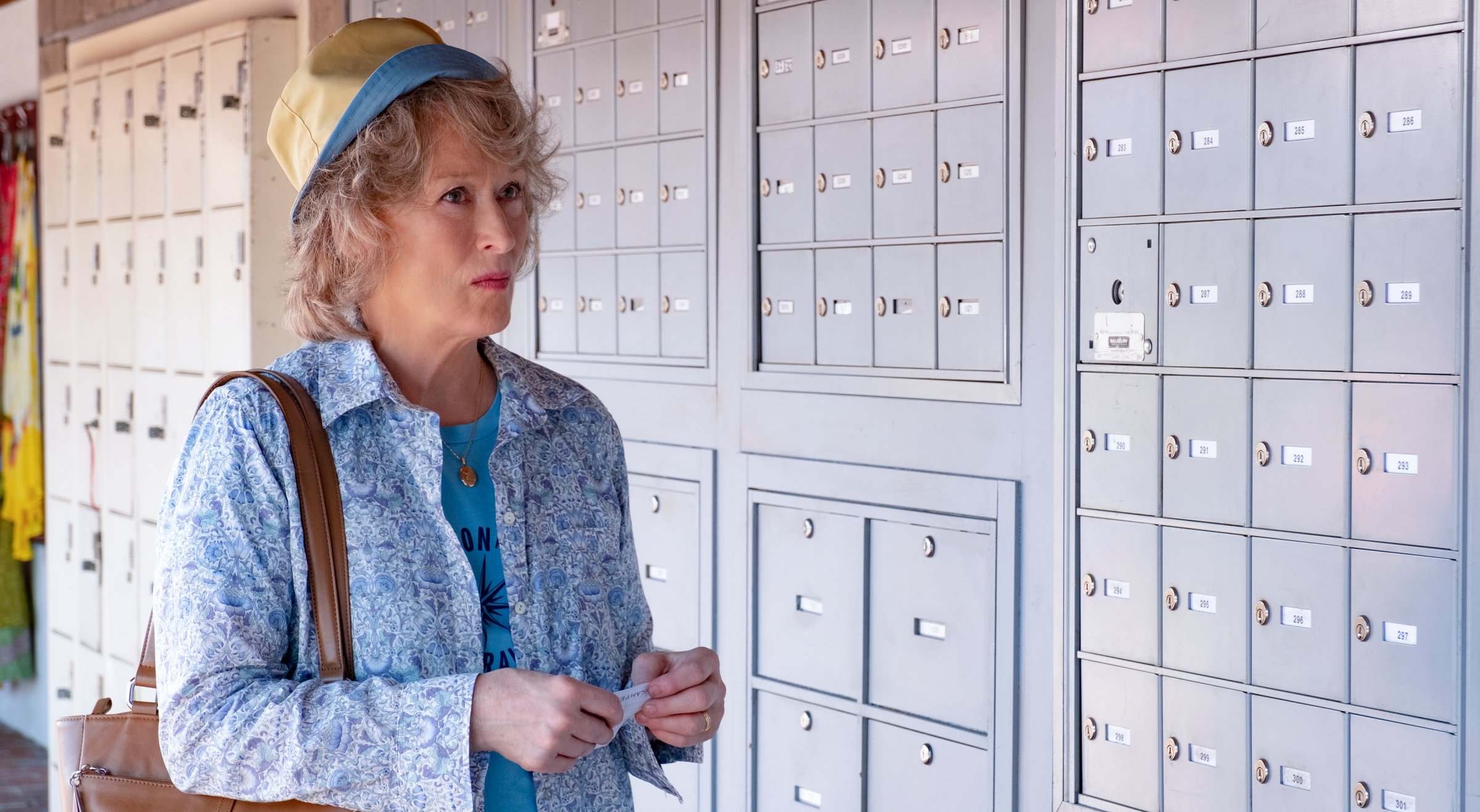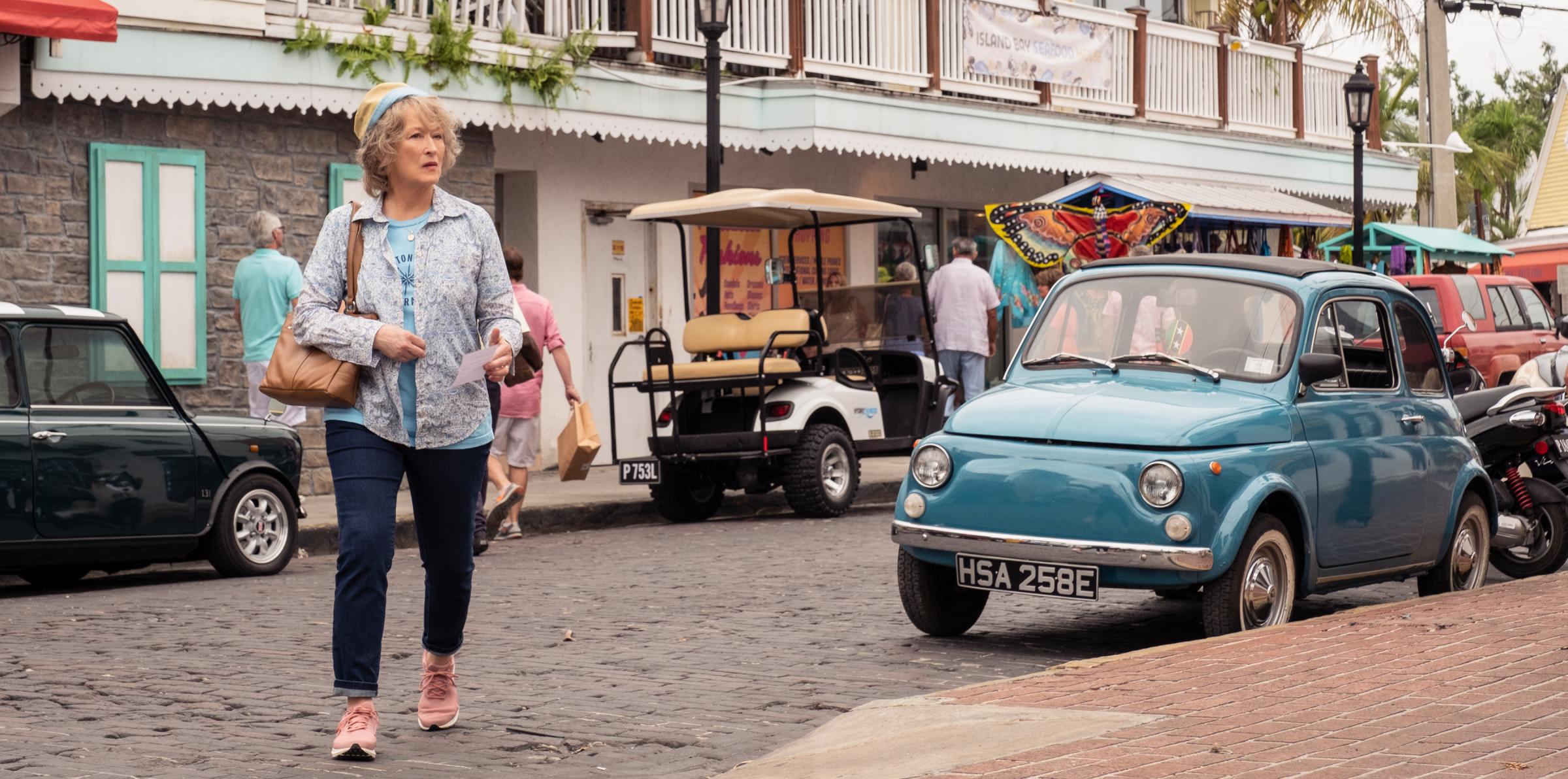
The Laundromat, playing in competition at the Venice Film Festival and released by Netflix, begins as a seduction and ends as a manifesto. The switching of tracks shouldn’t work, and along the way the movie is sometimes a little too broad. But director Steven Soderbergh keeps the momentum going and then gracefully rounds the bend toward an end you didn’t see coming. Much of the movie is bitterly funny; some of it just amusingly droll. But the finale, a rallying cry that’s both galvanizing and wistful, is a wrap-up worth waiting for.
In the opening scene we’re introduced to two refined gents dressed in tuxedos, holding martini glasses aloft as they set out to explain the finer points of moving money around in order to hang onto it—and multiply it. Ramón (Antonio Banderas) and Jürgen (Gary Oldman) will be our guides to a world of greed and ruthlessness, and they’re dashing rogues. Sure, we know they’re bad—but they look so good.
The Laundromat is divided into sections, each identified by a maxim that helps explain how people like Ramón and Jürgen get so rich. In a chapter called “The Meek Are Screwed,” we meet a retirement-age couple of gentle averageness. Ellen (Meryl Streep, in a forthright, genial performance) and her husband (James Cromwell) are having a little holiday with friends on Lake George. They board a perfectly innocent-looking and surely 100 percent safe tourist boat, but there’s an accident. Ellen, a well-mannered sweetheart of a woman who rushes around in sneakers and a bucket hat, is forced to navigate the world of insurance settlements when she discovers that the check she’s been looking forward to, and badly needs, is dismally small. The company running the tours is also screwed: Its policy had been purchased from a scammer who’s currently in jail.

Ellen, it turns out, isn’t completely meek, and she takes some initiative to learn all she can about this cheapskate insurance company. But she still can’t uncover the mystery of who, exactly, is benefiting from her misfortune. At one point, exhausted from sleeplessness and anxiety, she kneels in church to pray, thanking God for his blessings before she moves on to some anguishing questions about the divide between the rich and those who are struggling just to do OK: “What about those of us in the middle? We’re just falling farther and farther behind.”
Ramón and Jürgen know where Ellen’s money has gone, more or less. And they pop up again and again in the movie, spinning out a narrative that involves offshore investments, shell companies and all kinds of money laundering, some modes of which seem too bizarre to be true. If I were to tell you Ramón and Jürgen’s last names, you might recognize them, particularly if you have any knowledge of the 2016 Panama Papers scandal. But you don’t need to have any of that knowledge going in—Soderbergh lays the trail clearly, adding some Big Short-style graphics where they might be helpful.
Soderbergh isn’t always the most visually dynamic director, and here he’s more interested in crisp dialogue and the interplay between characters. But he’s enlisted a roster of delightful actors to play small but engaging roles (they include Sharon Stone, Matthias Schoenaerts and Jeffrey Wright), and Streep herself plays more roles than one—but to describe the others in any detail would spoil the effect. At one point Jürgen and Ramón explain, breezily, that the difference between tax evasion and tax avoidance is “as thin as a jailhouse wall.” They are, it turns out, the owners of a firm that helps clients avoid paying taxes, using methods that are in some cases technically legal, though once you know how they work, it’s a wonder how anyone who has benefited from them can sleep at night. There’s no cure for greed, and The Laundromat has no easy answers. But the only way to stop the spin cycle is to arm ourselves with some knowledge of how it works.
More Must-Reads from TIME
- Donald Trump Is TIME's 2024 Person of the Year
- Why We Chose Trump as Person of the Year
- Is Intermittent Fasting Good or Bad for You?
- The 100 Must-Read Books of 2024
- The 20 Best Christmas TV Episodes
- Column: If Optimism Feels Ridiculous Now, Try Hope
- The Future of Climate Action Is Trade Policy
- Merle Bombardieri Is Helping People Make the Baby Decision
Contact us at letters@time.com